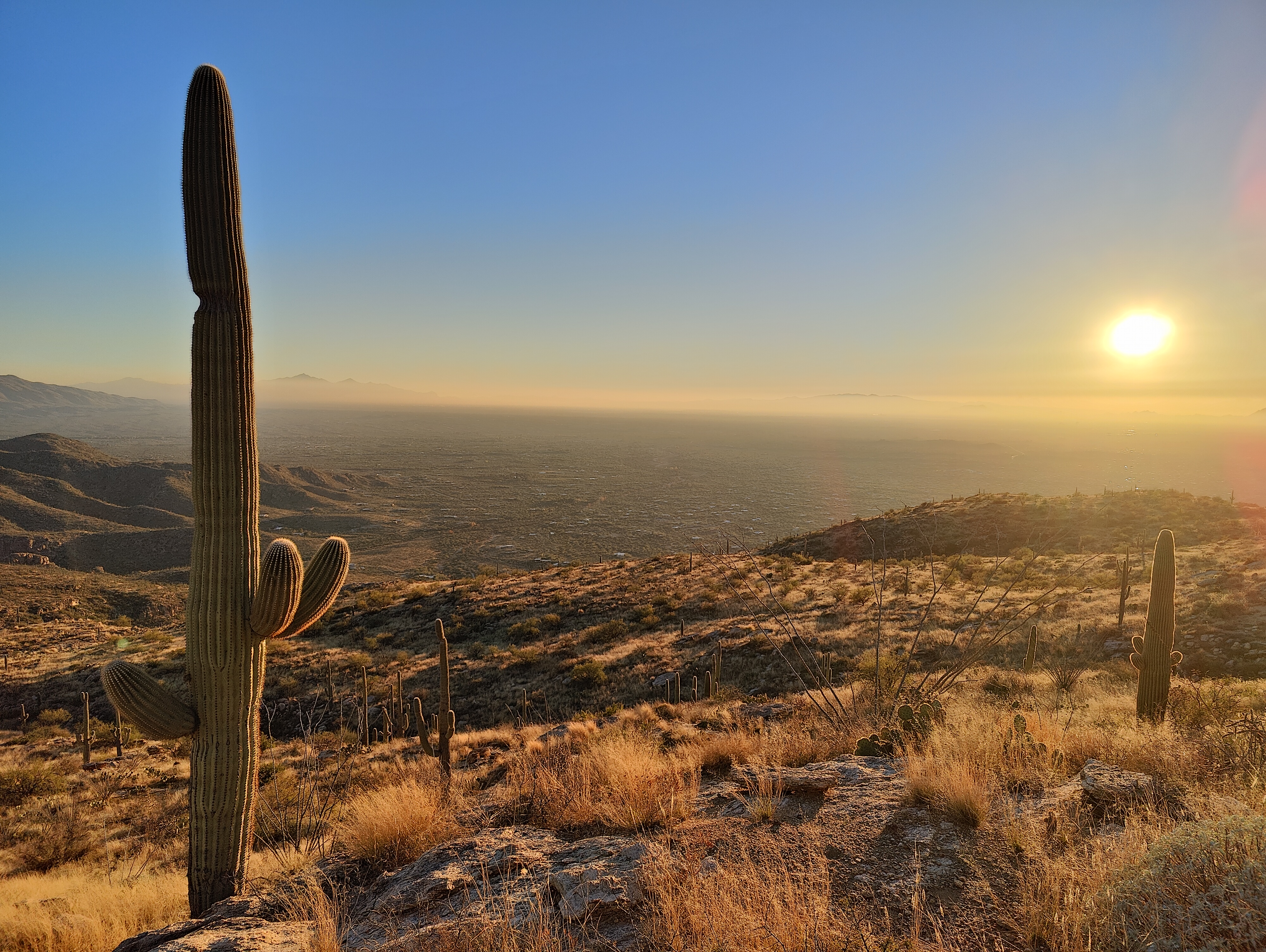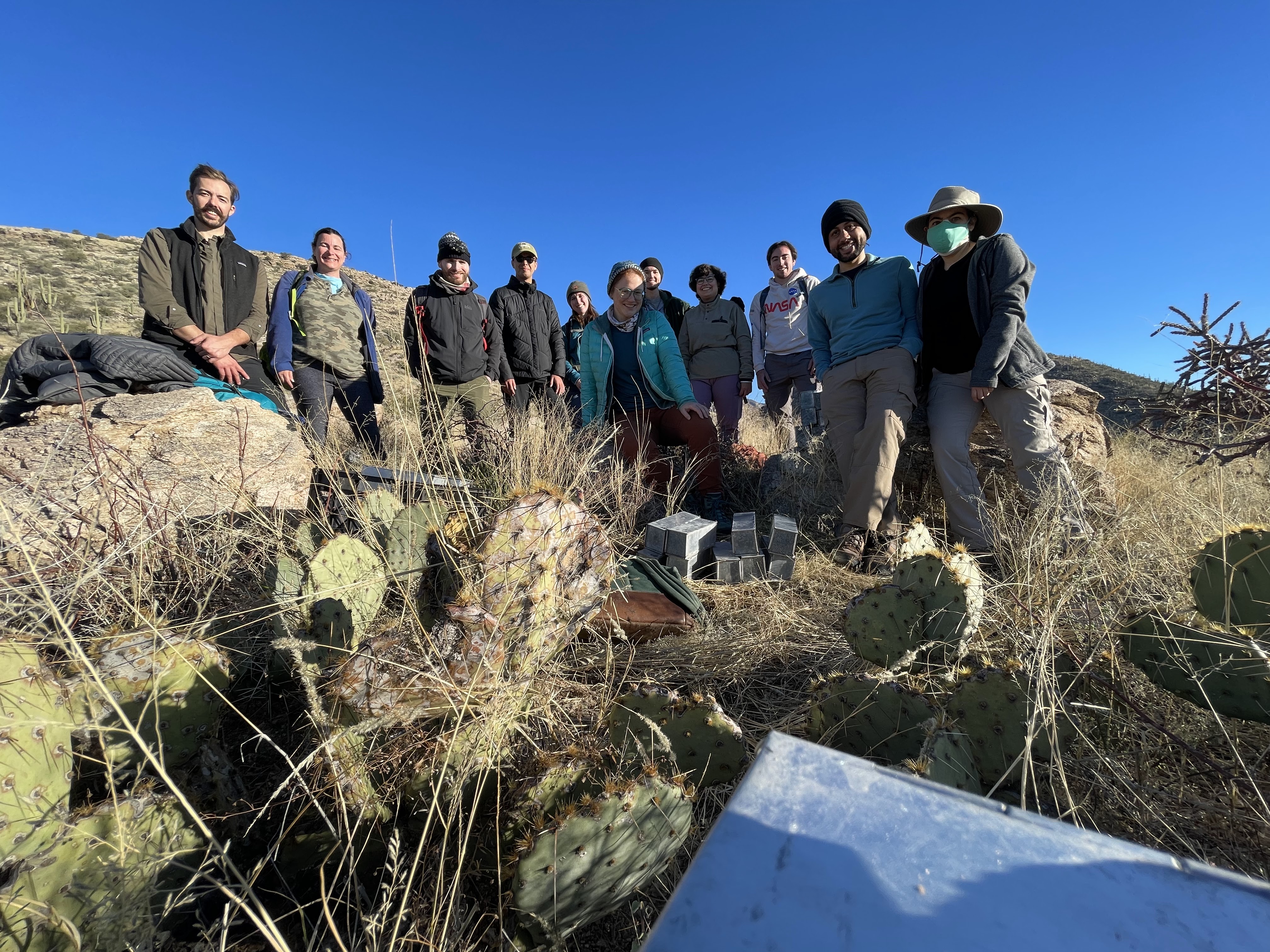Potential students
Come work with us in the Sonoran Desert!


Introduction
Super glad that you are interested in the lab. Please review the lab pages for research and recent publications to find out about what we do, how you could learn from joining us, and how you might contribute to our team.
Our work is primarily question-driven as opposed to by organism or region (though small mammals and Arizona are current favorites), so please think through where your conceptual interests lie relative to the full spread of ecological and evolutionary ideas. Your interests will likely continue to evolve, but having a core basis of curiosity with which to motivate your graduate study is essential for entering our group. Ecologists usually don't get monetarily rich (despite economics being a special category of ecology), so we need to pay ourselves with the satisfaction of loving what we study and becoming skilled at learning new things.
Types of questions we ask
See the Research page, but also:1. What are the species? (taxonomy and phylogenetics)
2. How fast are lineages evolving? (phylogenetic rates)
3. By what ecological processes? (comparative methods)
- Host-pathogen dynamics. Which mammal species have which viral, bacterial, and fungal symbionts? How are pathogens shared among species, and how do pathogen networks relate to risks of wildlife spillover to humans? We are studying these processes at both local scales in Arizona and at synthetic scales across clades of global mammals.
- Intrinsic species-level traits. How do traits like living underground, or flying, or having 12 mammae instead of 4 influence rates of gene flow or isolation and ultimately trends of speciation and extinction? We are currently studying these dynamics among global mammals, but there is ample fodder for more regional investigations.
Tools we use
Mammals
Phylogenetics and Genomics
Statistical modeling
Systems we investigate
Local
Regional
Global
Contact me
Currently, my lab is accepting PhD student applications through the Evolutionary Biology program in the ASU School of Life Sciences (SOLS). I also accept applications for MS in Biology students. Note that the ASU deadline is 1 December annually for applying to these programs. There is also the "4+1" route of an accelerated MS degree if you are a current ASU undergraduate student (details of the latter program here). I'd also encourage you to check out the full listing of SOLS graduate programs here.
I place a premium on curiosity, enthusiasm, research experience, analytical skills, writing ability, and creativity. If and when you decide to contact me, please take some time and write a thoughtful letter (this is also more likely to generate a thoughtful response). Please send me your CV and transcripts as appropriate. Tell me a bit about your interests, and why you’re interested in working with our group. Please understand that I may not be able to respond if you don't send these materials. Also, it bodes well if you’ve looked into a funding source or two, particularly if you’re interested in conducting dissertation work -- for example, the NSF Graduate Research Fellowship Program or Fulbright foreign program depending on your citizenship; the Fulbright US program also supports periods of international study while at ASU.
I tend not to accept PhD students who haven’t first earned their MS degree, but I will consider exceptional cases. If you are interested in forgoing an MS and working toward your PhD, I will prefer seeing some evidence of your ability to see something through from start to finish, preferably in the form of one or more peer-reviewed publications.
If you’re still interested in working with us after reading this far, please send me an email (nathan [dot] upham [at] asu [dot] edu).
I'll be glad to hear from you. Until then, make room for silence and treat each other kindly.
